Domino (2005)
/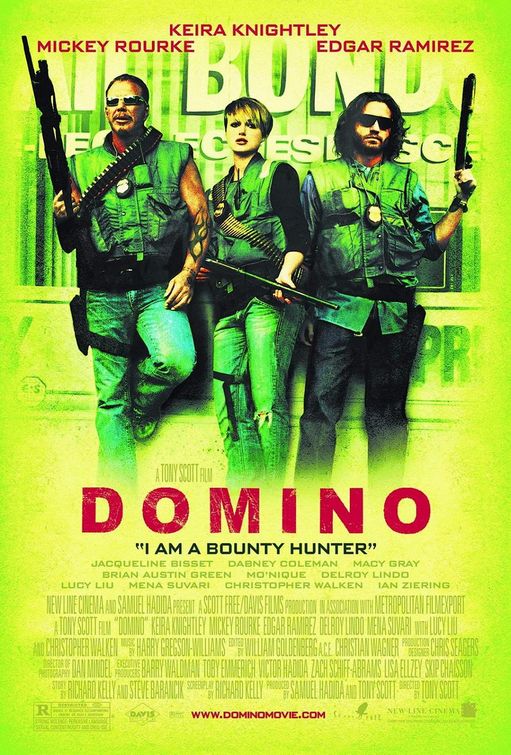
Domino has been called a mess by many critics and maybe it is. Perhaps the fact that director Tony Scott called it his favorite movie and hearing Richard Kelly talk about his screenwriting process (on Jeff Goldsmith’s Q&A about Tony Scott), made me more forgiving for this movie. It’s not great, but messy and exhausting. But it has its moments. I liked Mickey Rourke in it and most of the other performances are good too. Scott has some fun with his movie, experimenting the hell out of it and it certainly doesn’t look like any Hollywood action movie you’d imagine. But it’s also too long and nearly incomprehensible, although the plot doesn’t really seem to matter. What matters to Scott is his friend Domino Harvey and she’s the focus at all times. The rest is just fireworks to celebrate her.
Focusing on that character is the very rare exception of a movie entirely devoted to a strong female character. As portrayed in the movie (and who would attempt to see if anything the movie shows is true?), she was both a fashion model and a bounty hunter, basically the two most extreme gender-specific jobs for women and men. When she’s a model, she physically fights with other models. As a bounty hunter, she tries to be tough and wants to be accepted as if she’s a man. She rejects the fake life of Beverly Hills 90210 and sorority houses, breaking the cheerleader queen’s nose instead. When she confronts two bounty hunters to ask for a job, Moseby (Mickey Rourke) asks her why she thinks she could be a bounty hunter. Domino (yes, Keira Knightley) replies:
I’ve been training since I was twelve. Knives, guns, throwing stars, you name it, I can fight with it. I’m a hard worker and a fast learner. Nothing scares me. I’m not afraid to die.
These arguments of course are the absolute archetypes of machismo male attitude, no feelings, no fear and discipline. When he still doesn’t take her seriously, she replies: ‘You know what, enough of this little girl shit, the name is Domino.’ She rejects anything that is expected from a girl, trying to be as tough as any man she encounters. After Moseby agrees, the camera makes a 90° turn, as if she has actually just overturned gender conventions.
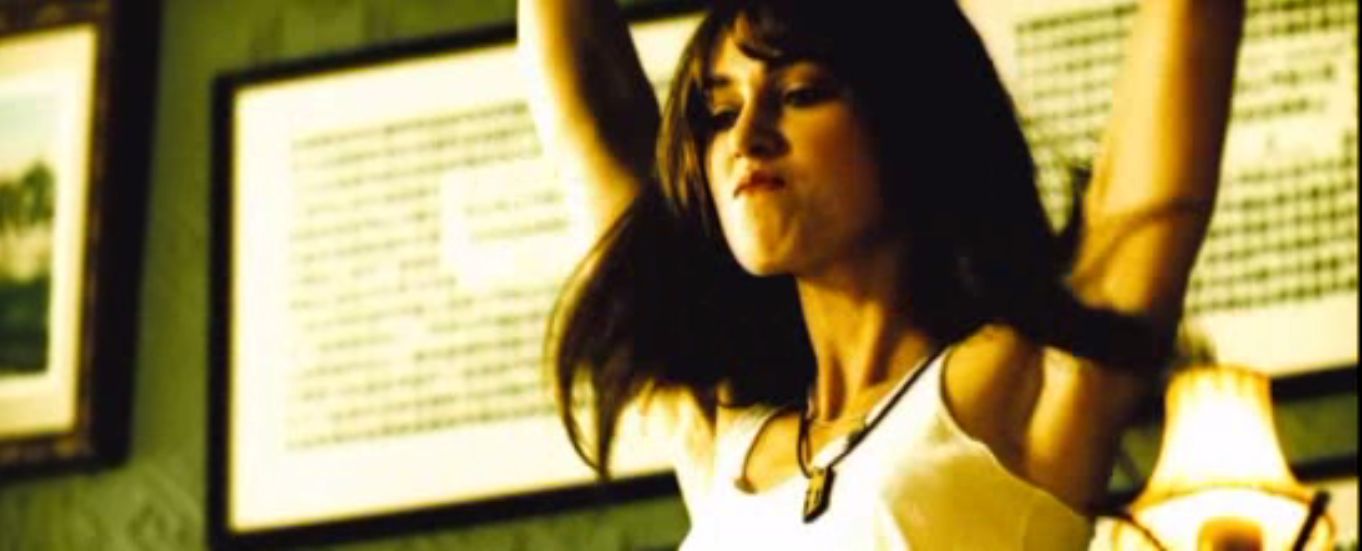
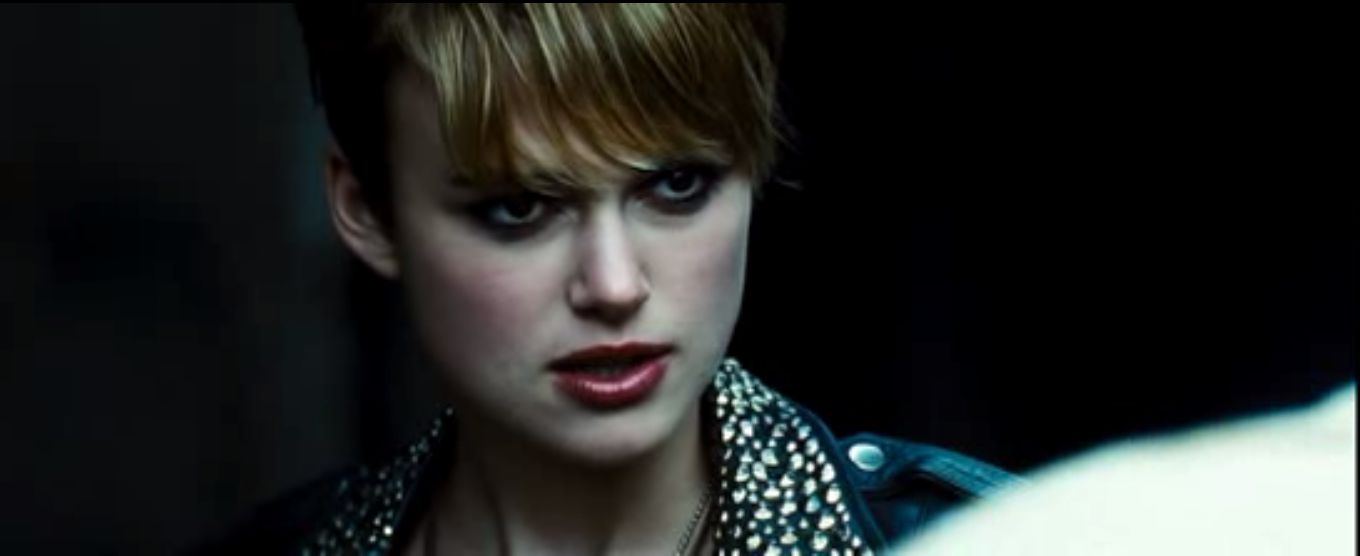
Still, Moseby agrees because he thinks that her looks will give his bounty hunter team a more attractive look. And she solves her first mission by using her “female attributes” by offering and giving the bad guys a lap dance. Her explanation for falling back on female tropes, a couple of minutes after her denial of them? ‘Sometimes a girl has to be naughty in order to get herself out of a jam.’ It’s a weird moment, basically admitting that a girl does not really have a chance, although she already showed her fearlessness to everyone. The sight of all the guys cheering her dance is discomforting.
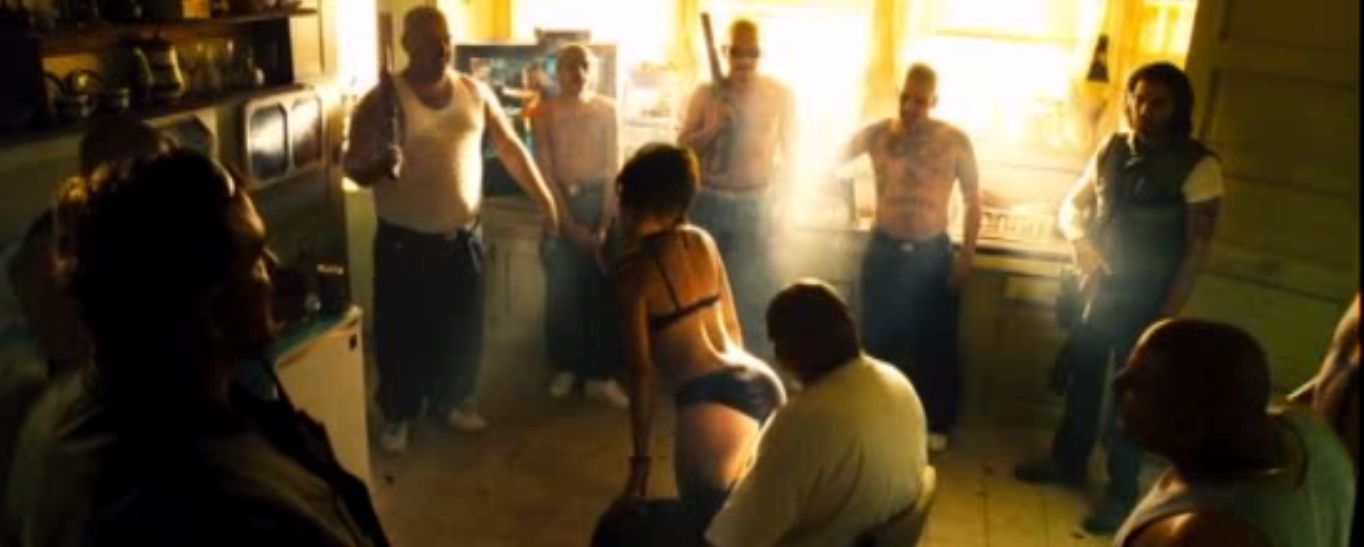
The framing story involves Domino being interviewed by a cop (Lucy Liu) who late in the movie confronts her with a provoking thesis:
Your blood test confirms that there is mescaline in your system, but I’m guessing it’s nothing new. It’s not unusual for someone like you. Pampered her whole life. To indulge in drugs as a coping mechanism. Not living up to expectations. Certainly not up to your mother’s.
Domino doesn’t deny this statement, even if she’s pissed by it. And maybe there’s an interpretation for the whole movie, Domino so fiercely rejecting not just her mother's, but society’s expectations. Which is fine, but it also becomes clear that she neither really reflects upon this rejection nor knows how to deal with the consequences. The movie doesn’t really go anywhere with this and strangely enough it follows this question with a sex scene, so that most of the male audience will just think: “I saw Keira Knightley’s boobs!”
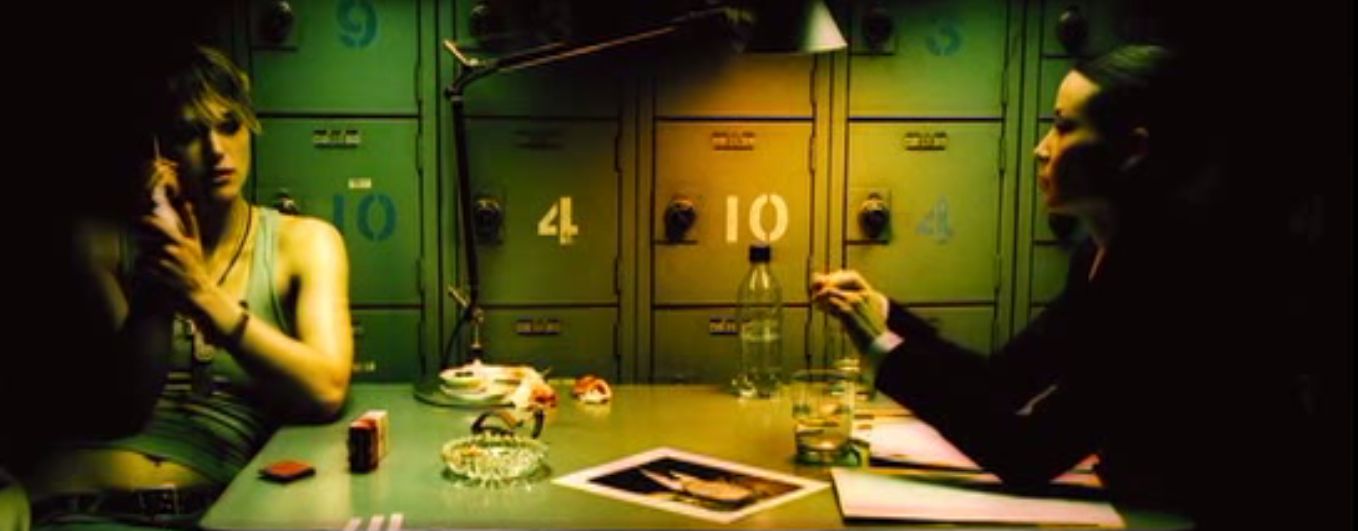
The last lines of the movie are the following, spoken off-screen by Domino:
If you wondering what’s true and what isn’t, you can fuck off because it’s none of your goddamn business. I’ll never tell you what it all meant. […] There is only one conclusion to every story: We all fall down.
I wish that last sentence would have been left away, because I’ll never tell you what it all meant is such an appropriate ending for this movie. We all fall down boils more down to We are all flawed, so it doesn’t matter how we get out of it. Which is much more disillusioning and conventional.
Eventually, the movie falls and stands with Keira Knightley’s performance as this strong, but probably misguided woman. Unfortunately, I didn’t really buy her, although (or maybe because) she tries so hard. She’s all gritted teeth, eyeliner and tough posture, but it feels fake. Maybe that was the intention and all of this is the story of a woman who desperately wanted to work against type/gender casting, no matter if it actually fit to her. It’s going against the flow, no matter what, and that is not the one right easy answer.

